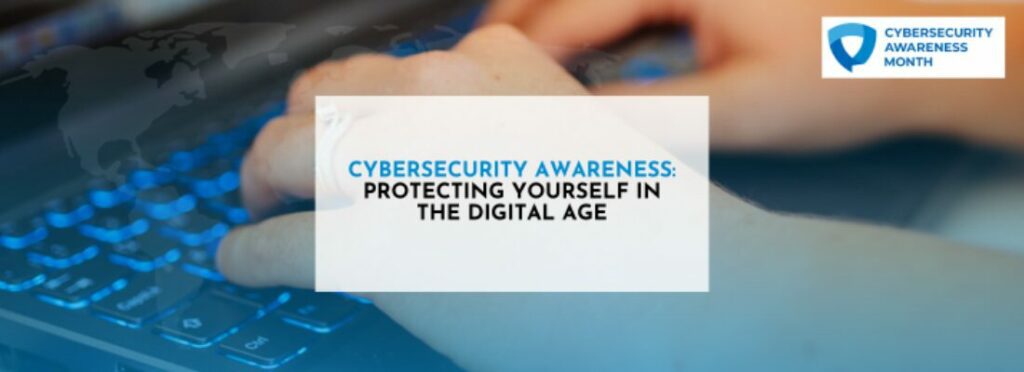In today’s hyperconnected world, our lives are increasingly intertwined with digital technologies. While the digital age has brought convenience and new opportunities, it has also exposed us to new threats and vulnerabilities. Data breaches have become all too common, with personal information, including passwords and financial data, being exposed. Protecting your data and privacy has never been more critical.
Cybercriminals are becoming more sophisticated, launching a wide range of attacks such as phishing, malware, ransomware, and identity theft. These threats can have devastating consequences for individuals and organisations alike. In this blog, we will explore the importance of cybersecurity awareness and provide practical tips to help you protect yourself in the digital age.
The Growing Importance of Cybersecurity Awareness
Cybersecurity awareness is crucial because it empowers individuals and organisations to protect themselves against a growing array of cyber threats, safeguard valuable data, and contribute to a more secure and resilient digital environment.
Many cyberattacks rely on manipulating human behaviour through tactics like social engineering. Cybersecurity awareness teaches individuals to recognise and resist these manipulative techniques, reducing the likelihood of falling victim to scams.
Practical Tips for Cybersecurity Awareness
Strong Passwords:
Use strong, unique passwords for each online account. Consider using a password manager to generate and store complex passwords securely.
Two-Factor Authentication (2FA):
Enable 2FA wherever possible. This adds an extra layer of security by requiring a second form of verification, such as a text message or a mobile app.
Email Security:
Be cautious of unsolicited emails, especially those with suspicious attachments or links. Verify the sender’s identity before clicking on anything.
Phishing Awareness:
Learn to recognise phishing attempts. Cybercriminals often pose as reputable organisations to trick you into revealing personal information. Verify the authenticity of emails or messages before taking any action.
Keep Software Updated:
Regularly update your operating system, antivirus software, and applications. These updates often include security patches that address known vulnerabilities.
Secure Wi-Fi:
Use strong, unique passwords for your Wi-Fi network and router. Avoid using default passwords, as they are easy targets for hackers.
Public Wi-Fi:
Avoid using public Wi-Fi networks for sensitive activities like online banking or shopping. If necessary, use a virtual private network (VPN) to encrypt your internet connection.
Social Media Privacy Settings:
Review and adjust your social media privacy settings. Limit the amount of personal information visible to the public.
Data Backup:
Regularly back up your important data to an external device or a secure cloud service. In case of a ransomware attack or data loss, you’ll have a backup to rely on.
Educate Yourself:
Stay informed about the latest cybersecurity threats and best practices. Cybersecurity awareness training can really help you arm you and your organisation with some great tips for cyber defence.
Password Changes:
Change your passwords periodically, especially for sensitive accounts like email and online banking.
Cybersecurity is not just the responsibility of IT professionals or organisations; it’s everyone’s responsibility. By taking proactive steps to protect yourself online, you can reduce the risk of falling victim to cyberattacks and data breaches. Remember that the digital world is constantly evolving, and staying informed and vigilant is the best defence against cyber threats. At Ghost Enterprises we are committed to helping organisations safeguard their sensitive information, we offer a wide range of cybersecurity services from cybersecurity audits to cybersecurity training, please get in touch with a member of our technical team to book your appointment today.
– By Holly

